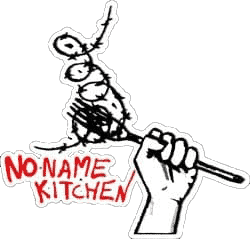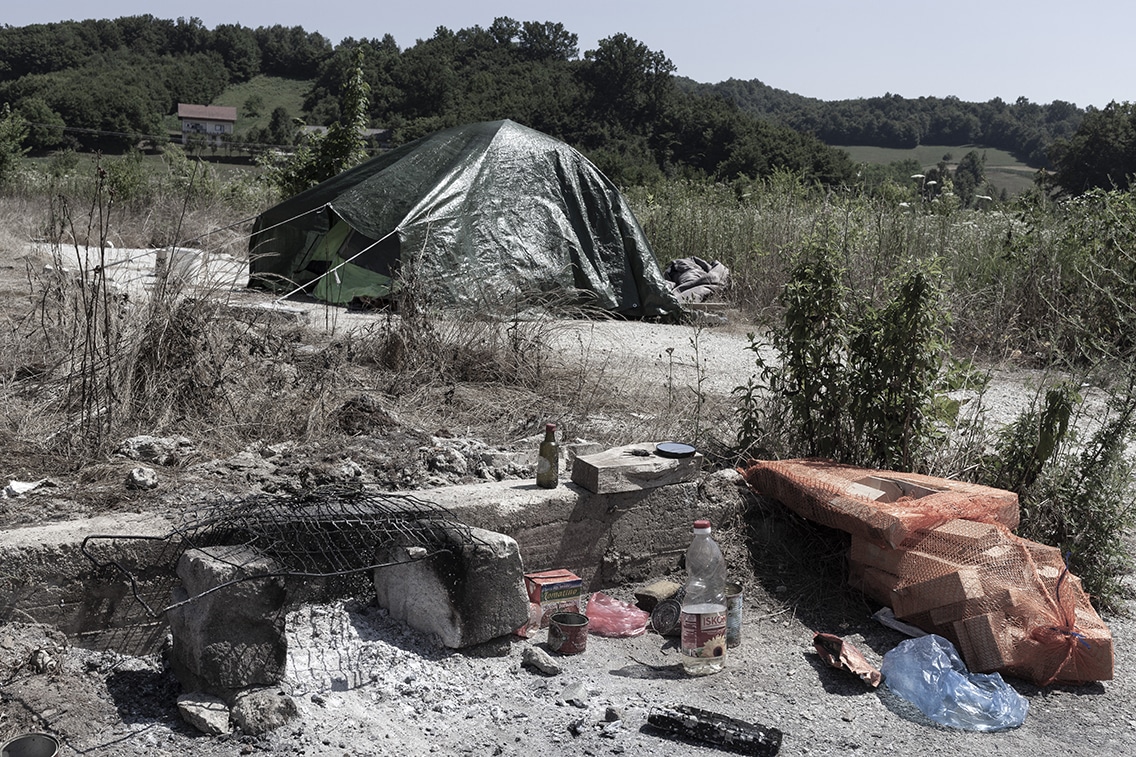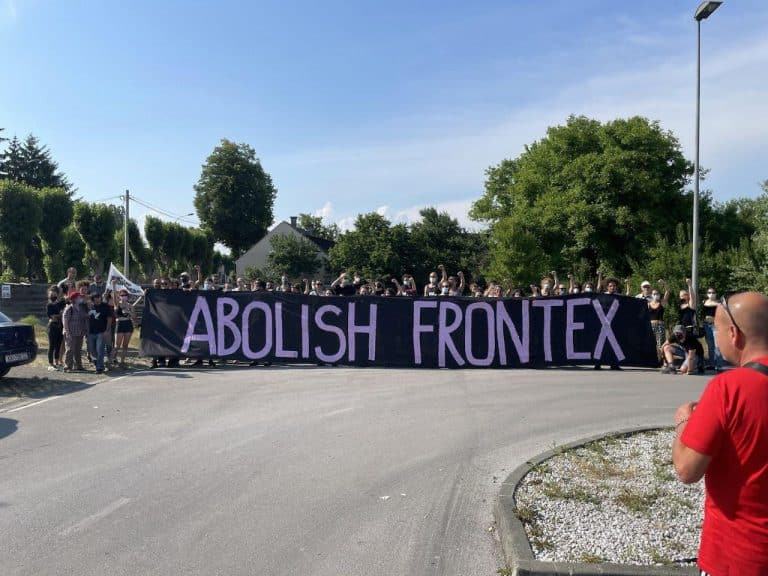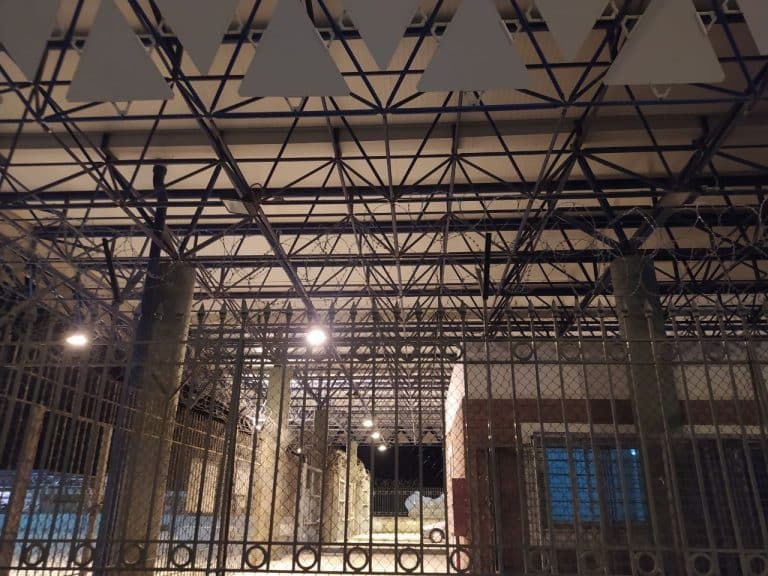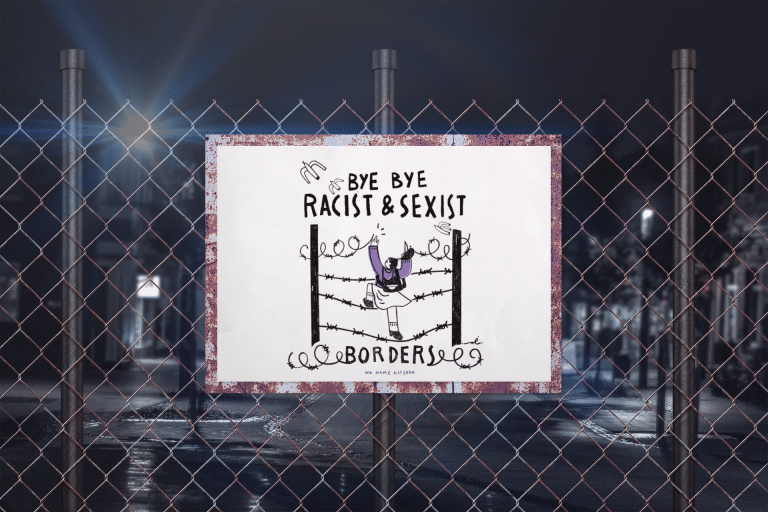CONTEXT: WHAT´S GOING ON?
The numbers of people on the move in the Bosnian/Croatian border have dropped compared to the previous summer yet have increased in comparison to the winter and the spring. Extreme difficulties in crossing Croatia make the route shift during the last months and there has been an increase in the number of people on the move in between Subotica, Horgos and Majdan, at the borders with Croatia, Hungary and Romania.
The people on the move are located in informal settlements in forests, abandoned buildings, private apartments and hostels and, a minority, in the three camps run by the Serbian government in Sombor, Subotica and Kikinda. The phenomenon is due to the tightening of border control measures, from which testimonies of police abuse and brutality emerge on a daily basis.
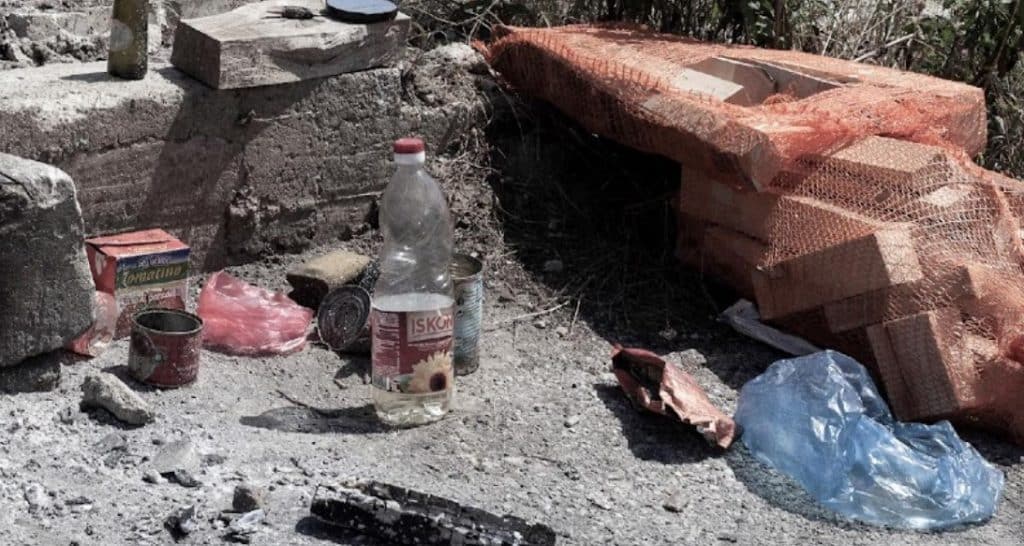
According to data from the UNHCR in June 2022, formal camps are overcrowded in Sombor and Subotica, where some 804 and 308 people occupy facilities prepared to accommodate a maximum of 390 and 166, respectively. Among the nationalities most present, those arriving from Syria, Afghanistan and Pakistan come first, followed by India, Bangladesh, Burundi, Iran, Iraq and Somalia, and from the African Maghreb, Morocco and Tunisia.
Against this backdrop, NNK launched a new project in Subotica, the second largest city in the region, located some ten kilometers south of the Hungarian border and some sixty kilometers west of the Romanian territory. Since then, NNK team has been traveling more than 150 kilometers of border every week to monitor the situation of the people and to take reports of pushbacks and police violence against them by the federal forces of these countries.
NNK assists 500 people weekly with personal hygiene items, food and cooking ingredients, non-food-items, hot showers and drinking water.
From a migration management point of view, the situation on the field has not improved. The modalities of pushbacks, collected by NNK and published in our BVMN’s monthly reports, have been particularly violent. Practices like the theft of belongings, beatings and the use of pepper spray (even against a minor women from Sierra Leona) have been reported in this last period. In most cases people were driven back in overcrowded vans to the vicinity of the border and forced to walk back.
The government of BiH carried out the first forced deportation of Pakistani citizens to Pakistan, becoming the first country of the Balkan route to implement such practice (July 31st Service for Foreign Affairs deported the first group from Sarajevo International Airport). New agreements with governments of Afghanistan, Bangladesh, Egypt and Morocco are trying to be set.
In parallel, NNK’s violence reporters started noticing that many people are mentioning a “7 days document” handed by Croatian police that supposedly allows people to stay in Croatia for a week without a clear instruction on what should they expect later on. Also, there has been an increase of arrivals to Piazza Libertà in Trieste, Italy, where the game is over for the PoM but not the struggle, as they find themselves hosted in overflowing facilities or otherwise in the streets, including families and young children.
SITUATION IN CEUTA
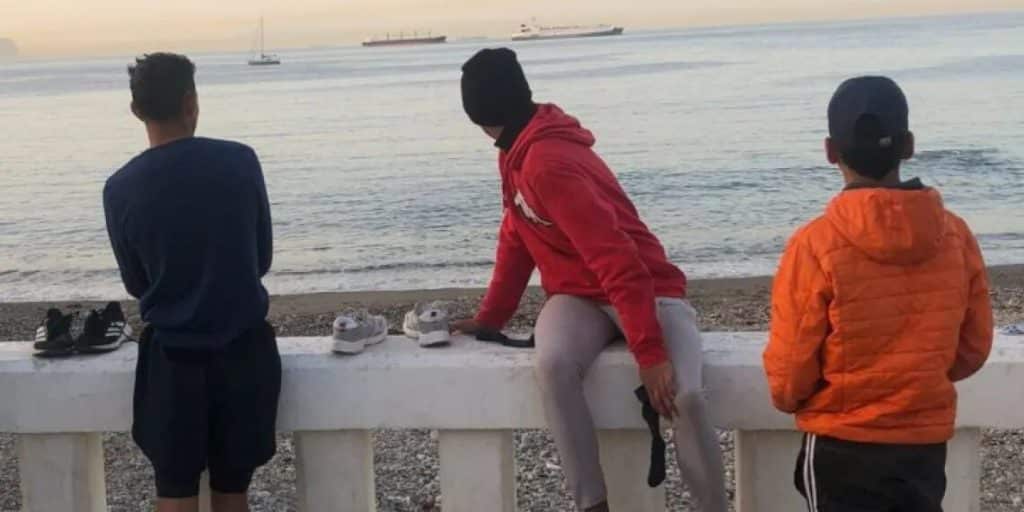
In the Spanish city of Ceuta, one of the gateways to Spain from Morocco, violations of migrants’ rights continue to be the daily routine. In the first half of the year, the agreement between the Spanish and Moroccan governments has reinforced the externalisation of the borders more than ever and the European Union sent the Rabat government 500 million euros to keep people out of EU borders at all costs, shortly after the massacre in Melilla. The border between the two countries reopened after more than two years of closure due to the pandemic, but with more restrictions than ever before, leaving many people who used to come from neighbouring towns to Ceuta without what was their economic activity and income.
Meanwhile, in Ceuta we find many minors living out on the streets. Many of them claim that they would rather be sleeping on the streets than in the centres for minors set up for their protection. In Ceuta, as well as providing health treatment and clean clothes, we have a legal team with lawyers. Every day we make rounds through the city to visit these children, create spaces of care and trust where we can share the situation, remind them of their rights and let these people know that if they want to denounce a violation of these rights, we will accompany them in the process.
We also support adults or people who have just reached the legal age of 18 to obtain documentation that will allow them to have more rights and freedom of movement. Ceuta, for the European Union, separated from the mainland by a dangerous sea, represents one more border and there are legal obstacles that people face preventing them from crossing easily from here to the rest of Spain.
NNK ACTIONS
No Name Kitchen (NNK) has adapted the routine to the extreme hot weather in Bosnia, Serbia, Greece and Spain to continue the threefold action plan:
1. Health on the move
2. Distribution of Food and NFIs
3. Advocacy to stop the violence.
One of the measures has been splitting distributions in two shifts, early in the morning and late in the evening. Morning distributions are carried out by two members of the team who visit, not only the people who have asked for NFIs (Non-food Items, like clothes or shoes) through our hotline, but also all the other locations where our support is reaching.
The morning assessments are useful to check on a daily basis how people are, if they need medical assistance or showers, vouchers, to collect new NFIs orders or just to spend time together in solidarity. Furthermore the teams on the field can have a very clear overview of the situation, even in a period where the turnover of PoM is very high. Thank you to this knowledge, empty squats are cleaned in depth and 20 liter canisters of drinking water and dry food are left inside. This is particularly necessary for people who are pushed-back during the night.
Our voucher program – a system of codes with whom people on the move can freely decide what to buy in different supermarkets of the area – has been expanded to northwest of Bosnia (Vrnograč) where currently the numbers of PoM have increased.
NNK has tried its best to provide PoM with means for their self-protection in an effort to generate a collective community of care. NNK is helping to cope with the pain and the struggle of people’s journeys by standing together in solidarity and an active listening and empathy is performed daily on the field. Even though it cannot be numerated, this constitutes a key element in NNK’s practice and it should be in the center of the conversation.
NUMBERS DON’T SHOW EVERYTHING, BUT GIVE A CLUE
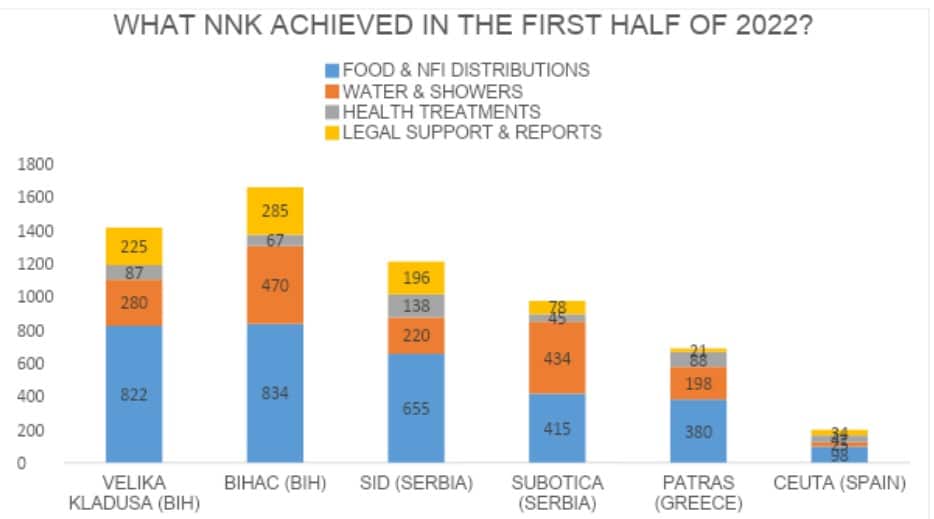
SOME STORIES ARE THE BEST REPORT
- Post about family from Burundi traveling with a 2 year old kid stating how they have been pushed back twice already: https://www.instagram.com/p/ChcjQxDNCkz/
- Post about the death of Elahm, minor: https://www.instagram.com/p/CgeipBGNGdm/
- Photo-reporter Mónica Parra has recently published a book about the situation in the EU borders. A whole chapter is dedicated to NNK’s history and current activities
WHAT´S COMING NEXT
- Expanding our base in Subotica to cover more people in Horgos and Majdan, with special attention in hot showers and shelter for the upcoming winter.
- Assessment in northeast Bosnia, around Gradiska area, where some groups of PoM are setting makeshift camps trying to reach Croatia through this new crossing spot.
- Settle our Legal service in Ceuta witb a lawyer hired by NNK living in the city
- Strengthening the work with legal clinics form Italy and Germany, to systematize better the kind of information requested by PoM, and identifying clinics form other countries.
- Launch a winterization campaign to collect resources for distributions during winter, focusing in firewood, sleeping bags and kitchenware.
